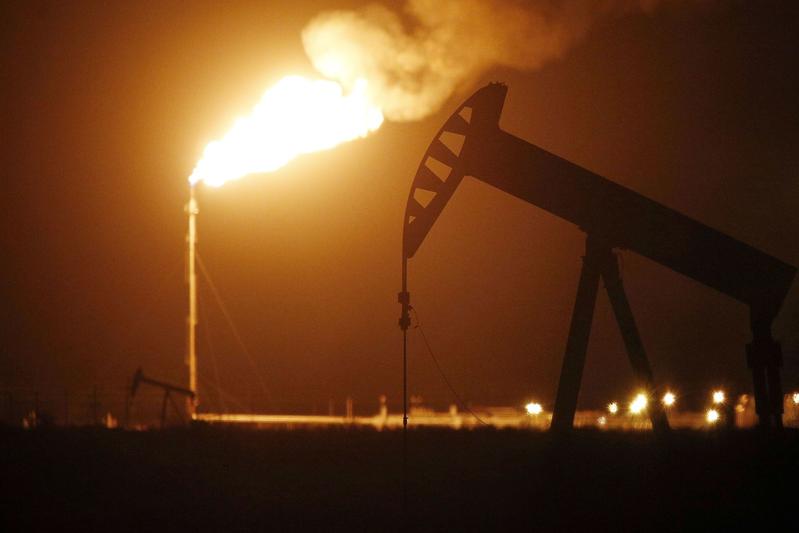 The silhouette of an electric oil pump jack is seen near a flare at night in the oil fields surrounding Midland, Texas, US, on Nov 7, 2017. (LUKE SHARETT / BLOOMBERG)
The silhouette of an electric oil pump jack is seen near a flare at night in the oil fields surrounding Midland, Texas, US, on Nov 7, 2017. (LUKE SHARETT / BLOOMBERG)
The UK will become the first major industrialized nation to end all public finance for fossil fuel projects overseas, in an effort to mark itself out as a leader in tackling climate change.
READ MORE: World feels the heat of climate change
Prime Minister Boris Johnson will make the announcement at a virtual United Nations summit on Saturday, which he’s co-hosting with France, Italy and Chile. More than 70 world leaders are due to attend the event, alongside Pope Francis and Apple Inc Chief Executive Tim Cook, who will each pledge to step up ambitions to curb emissions.
While it may have a political upside for Johnson, the new plan will mean changes for business. Siemens AG and General Electric Co are some of the companies that have benefited from UK backing for fossil fuels projects in countries such as Ghana and Iraq
The summit, which has been planned for months, comes as Johnson’s government is locked in fraught negotiations to avoid a chaotic split from the European Union single market on Dec 31.
He wants to use green policies to prove that the UK will continue to have influence outside the EU’s trading bloc, including to bolster relations with US President-elect Joe Biden. The incoming White House administration is skeptical of Brexit, but wants to rejoin the Paris climate agreement and Johnson and Biden have already discussed their goals for green policy.
While it may have a political upside for Johnson, the new plan will mean changes for business. Siemens AG and General Electric Co are some of the companies that have benefited from UK backing for fossil fuels projects in countries such as Ghana and Iraq.
In the past four years the UK has supported 21 billion pounds (US$28 billion) of UK oil and gas exports through trade promotion and export finance, according to a statement from Johnson’s office.
The decision to ban fossil fuel finance “sets a gold standard for what serious climate action looks like,” said Nick Mabey, chief executive of E3G. The environmental group said the UK plan will go further than a similar policy in France, which doesn’t cover all fossil fuels and only applies to export finance, and is the most ambitious among industrialized nations.
Johnson will also pledge 10 million pounds to a new initiative to help poor nations invest in green technologies in order to recover from the pandemic, his office said.
ALSO READ: Crucial role on climate change
The ban on fossil fuel finance is set to come into force by November 2021, when the UK will host COP26 global climate talks in Glasgow, Scotland. The UK Export Finance agency will continue to consider applications for support in the oil and gas industries until a final decision is made in February 2021. Some of the cleanest gas-fired power plants will also be exempt from the ban, Johnson’s office said.
The decision was also welcomed by the opposition Labour Party, who had been calling for a similar ban. “Ending our hypocritical position on fossil fuels financing is a basic prerequisite for being a credible host of COP26,” said Ed Miliband, Labour’s spokesman for business, energy and industrial strategy.
The UK also plans to work with North Sea oil and gas companies to help create global hubs for wind energy, carbon capture and storage.


